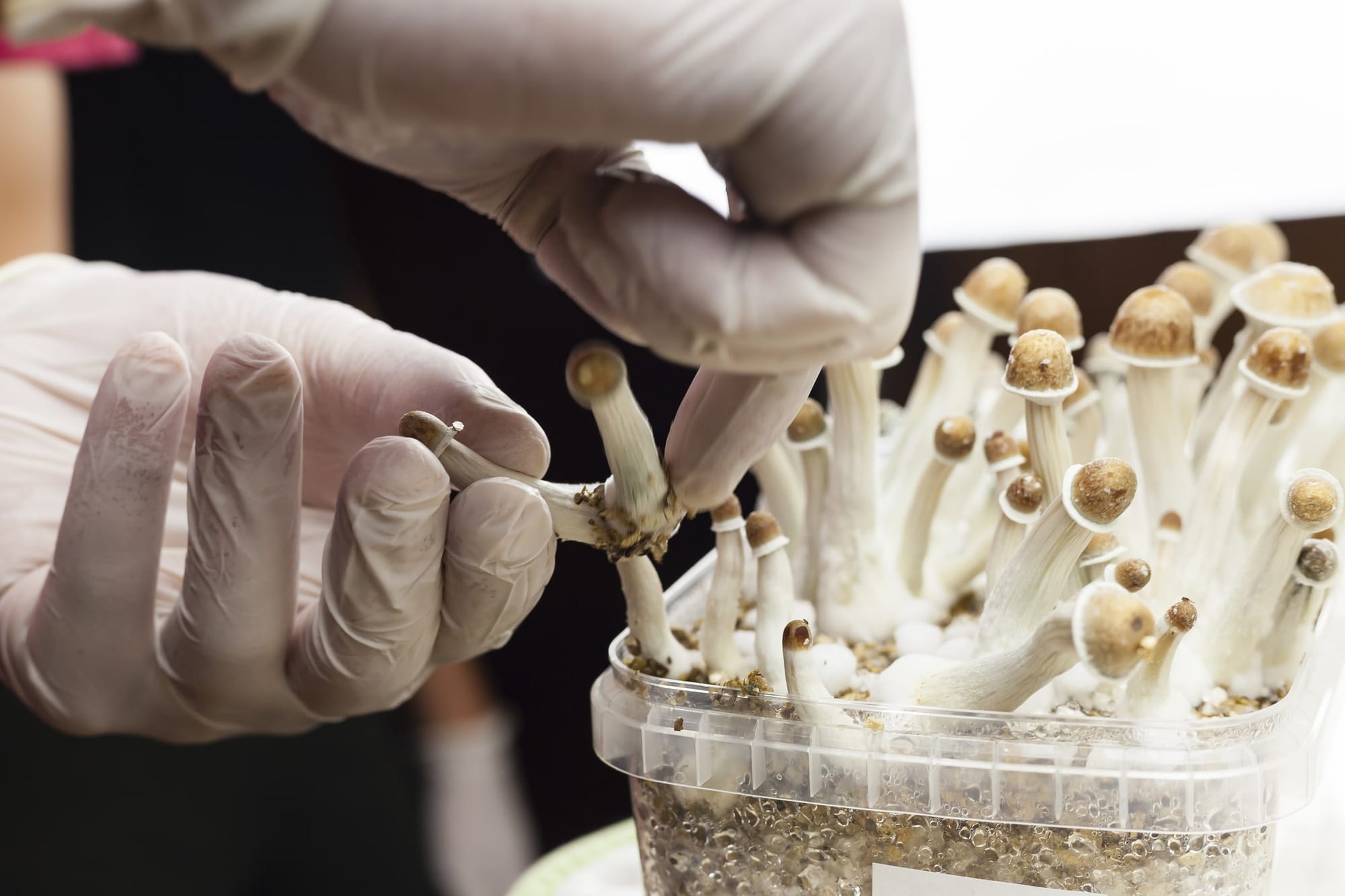
On 3 February, the Therapeutic Goods Administration (TGA) approved the use of 3,4-methylenedioxymethamphetamine (MDMA, the active ingredient in ecstasy) and psilocybin (the active ingredient in magic mushrooms) for the treatment of post-traumatic stress disorder (PTSD) and treatment-resistant depression, respectively.
From 1 July, 2023, MDMA and psilocybin will move from being “prohibited substances” to “controlled drugs” for these disorders, putting them at the same classification level as ketamine and morphine.
Australia will be the first in the world to allow the prescribing of these medicines by approved psychiatrists, building on the highly promising outcomes in large-scale clinical trials overseas.
43.7% of Australians have experienced a mental health condition during their lifetime. One in five Australians reported a mental health condition in the past 12 months, but this doubled to 39.6% for young people aged 16-24 years.
Rates of mental health conditions are higher in some groups, including veterans, first responders, victim-survivors, and First Nations people.
The risk of developing PTSD is higher among Indigenous peoples, veterans, and first responders.
Watch: A Different Lens: Treating mental illness with psychedelics
Suicide rates have also increased in the past 20 years. Some professional groups are at greater risk of suicide, including agriculture and construction. Veterans are also overrepresented in deaths by suicide, a topic currently under a royal commission investigation.
Measures of psychological distress also increased significantly throughout the COVID-19 pandemic, and have not returned to pre-pandemic levels. Demand for mental health services continues to exceed availability, and people face long waiting lists.
The mental health crisis has a significant negative impact on sufferers, families and carers. It also impacts businesses and the economy. Something drastic needs to change to address this.

Clinical guidelines for PTSD consistently recommend both psychological (that is, talking) therapies and pharmacological – for example, selective serotonin reuptake inhibitor (SSRIs) – antidepressants as first-line treatments.
However, SSRIs have been reported to have only small effect sizes. In contrast, a 2021 randomised, double-blind, placebo-controlled phase three trial that found MDMA-assisted therapy significantly improved PTSD symptoms for those with severe PTSD further complicated by co-morbidities such as childhood trauma.
Key stakeholders in the space of mental illness (such as professional healthcare bodies and politicians, as well as the general community) are cautiously optimistic about the use of psychedelic medicines to treat mental health conditions, although many believe more research is needed before supporting the move.
Three steps to success
Since the TGA has just approved the controlled use of psychedelics based on existing evidence, we use findings from our own research to suggest three ways to get key stakeholders on board and set up the scheme for success.
Clear and relatable messaging is vital
Community members generally have a poor understanding of psychedelic-assisted therapies, so communications should emphasise how treatments work, that treatments are medically supervised, and that treatments and associated research are strictly regulated.
Messages should be delivered using plain language that most can understand, and use personal stories that evoke empathy. For example, the story of Cooper Wallace, who has intractable epilepsy, and found improvements in using cannabis oil was pivotal in changing political opinion that facilitated the push for cannabis decriminalisation.
Messages need to be targeted to specific groups
Those with prior experience of mental health conditions (personally or as a carer), young adults, and more highly educated adults tend to be favourable towards the use of psychedelic medicines to treat mental health conditions.
In order to increase support from groups who might be less supportive, such as older adults and those without experience with mental health condition, it’s important to have them engage with materials and information about psychedelic drugs that appeals to their values, potentially shifting their attitudes from undecided or negative to at least neutral, or even positive.
The high level of trust in doctors and scientists could be leveraged
Al Gore’s An Inconvenient Truth, a documentary outlining the threat of climate change, has been credited with changing community attitudes and behaviours towards climate change (such as empowering people to fight climate change).
In this example, Al Gore, the former US vice-president, could be seen as using his credibility as a leader to persuade people to trust his message.
Doctors and scientists are among the most trusted professions. Therefore, communications materials designed to persuade and convince people about the benefits of psychedelic medicines to treat mental health conditions must be delivered by these trusted entities.
Collaboration between doctors, scientists and the media could improve the quality of information being produced, while direct engagement of doctors and scientists with online platforms, including social media, could further leverage source credibility.
However, the message delivered by doctors and scientists must also be trustworthy to convince people to believe them.
Read more: Psychedelic research renaissance: The urgent quest for new mental health medicines
The message must also be honest, and outline the strengths and weaknesses of the existing evidence base, including therapeutic benefits and longer-term effects, but also any concerns regarding adverse events.
The honesty used by the Victoria’s Chief Health Officer, Professor Brett Sutton, as well as his relatability, saw him emerge as a key influencer during the COVID-19 pandemic, reportedly making news of new restrictions easier to accept.
We’ve needed a new pharmaceutical approach to managing severe mental health conditions for some time.
Now that the TGA has provided greater access to promising medicines, it’s important we get the rollout right to ensure those suffering have access to what could be an important ingredient in solving the mental health crisis.





